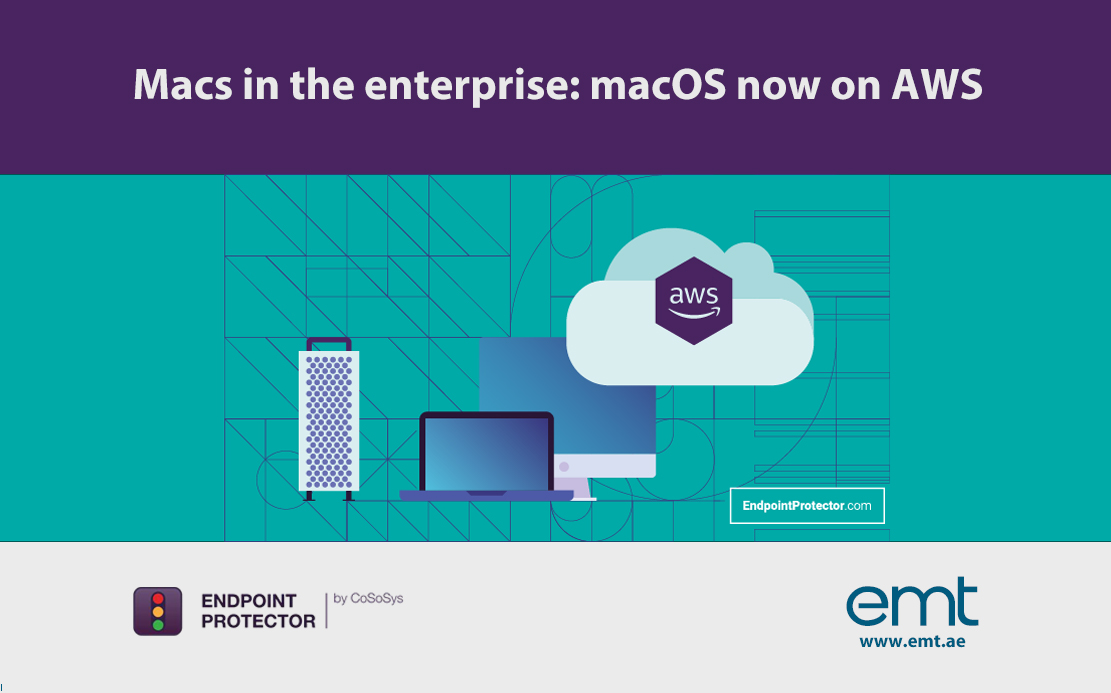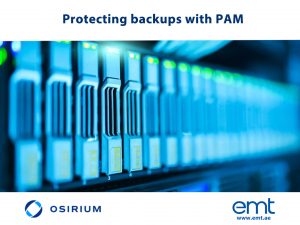In an exciting turn of events for Apple developers, Amazon has announced that, for the first time, macOS will be available on its Amazon Web Services (AWS) cloud. As of 30th November 2020, Amazon Elastic Compute Cloud (EC2) Mac instances for macOS can be accessed within minutes and scaled according to needed capacity, with users benefitting from AWS’s pay-as-you-go pricing.
Amazon’s new EC2 Mac instances are not virtual machines, but Mac mini systems bolted in pairs to 1U rack-mount sleds. The Mac minis used are Intel-based models, with 8th Generation Core i7 processors and 32GB of RAM. Developers can choose to run either macOS Mojave or macOS Catalina, with support for macOS Big Sur expected soon.
Although they’re not virtual machines, Amazon EC2 Mac instances can be spun up and down nearly as fast due to the AWS Nitro System which fully integrates and manages Mac mini computers as EC2 instances and provides 10 Gbps of Virtual Private Cloud (VPC) network bandwidth and 8 Gbps of Elastic Block Storage (EBS) bandwidth.
The advantages of Amazon EC2 Mac instances
Amazon’s introduction of EC2 Mac instances will have a significant impact on Apple developers and their work. Until now, they had little choice but to maintain and patch their own Mac machines with few options available for hosting macOS instances and even then, nowhere on the same level of reliability and scalability offered by big cloud providers.
Amazon EC2 Mac instances will now provide macOS developers with the means to develop, build, test, and sign applications for Apple devices such as iPhone, iPad, iPod, Mac, Apple Watch, and Apple TV directly in the cloud. This will allow small IT companies to get rid of on-premise closets full of hardware and the manhours needed to support them and will give larger companies more flexibility and the possibility to instantly scale-up their computing capacity.
There are also the cost benefits of AWS for all Apple developers, given Amazon’s pay-as-you-go pricing model. It means that companies and developers can adjust their computing capacity to meet demands as they create and test applications and can easily scale back down when there is no longer a need for it. This dynamic scalability allows users to pay only for what they use when they need it and avoid the financial investment, procurement procedures, and time needed to scale up physical hardware.
Protecting data on Amazon EC2 Mac instances
Running an Amazon EC2 Mac instance is like having access to a brand new Intel Mac mini. As with all cloud services, companies must be vigilant when it comes to the protection of personal information that falls under the incidence of data protection regulations, but also with apps being developed on EC2 instances. Should malicious outsiders gain access to them or insiders’ negligence leave data exposed, companies can find themselves suffering data leaks that can jeopardize months of work and make them liable to fines in the eyes of the law.
Data Loss Prevention (DLP) solutions can help organizations protect sensitive data and intellectual propriety (IP) from uncontrolled distribution, theft, and loss through policy-based access and controls. By deploying DLP tools in the cloud, companies can monitor and govern sensitive data and IP transfers between their internal workforce, but also third party collaborators, and system administrators.
In conclusion
Amazon EC2 Mac instances are a welcome addition to the Apple development world, making the creation of apps for Apple devices easier, faster, and more accessible than ever before. It will open the door to more developers and help both smaller and bigger companies to enhance their computing capacity and take bolder steps in their growth.
Source : https://www.endpointprotector.com/blog/macs-in-the-enterprise-macos-now-on-aws/






